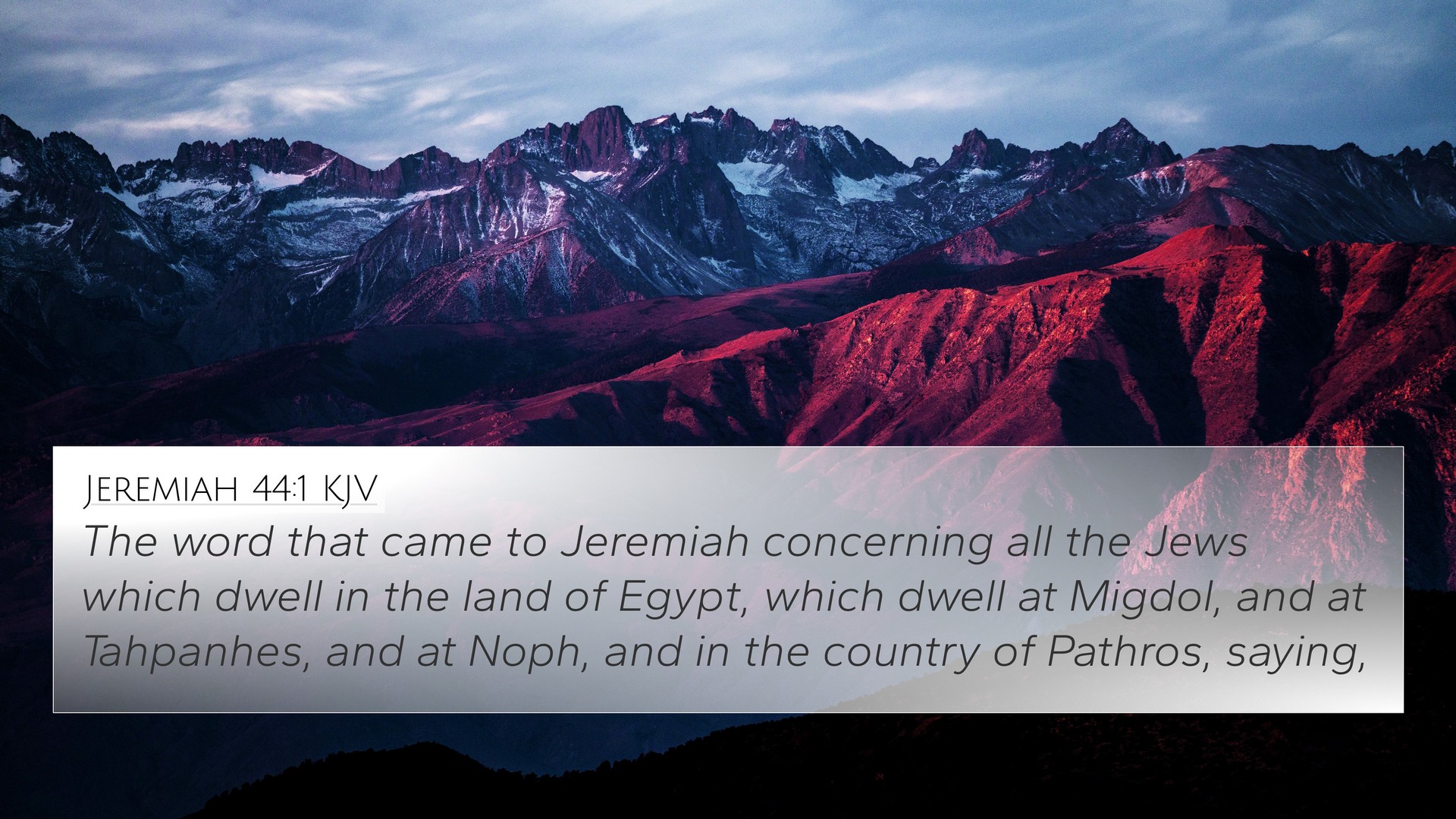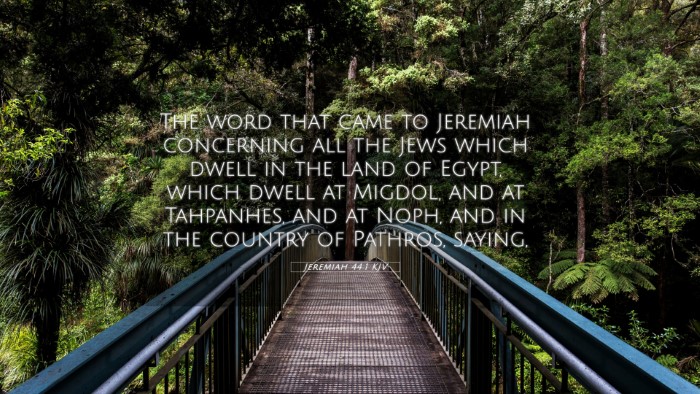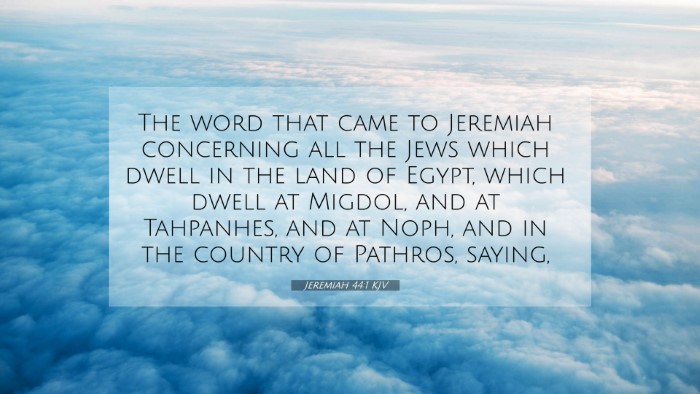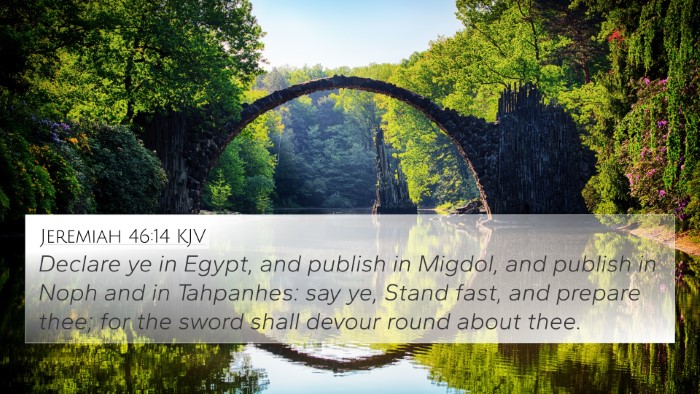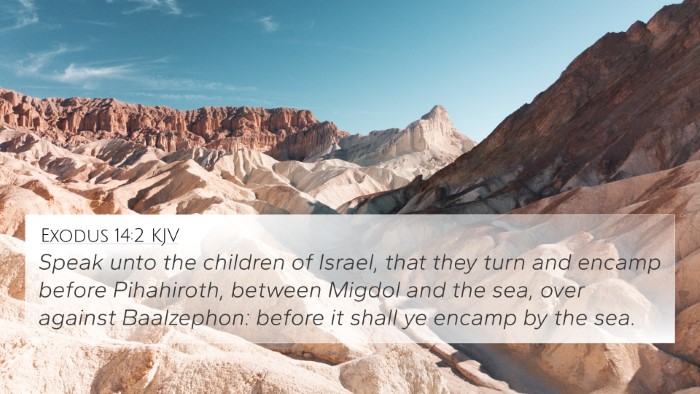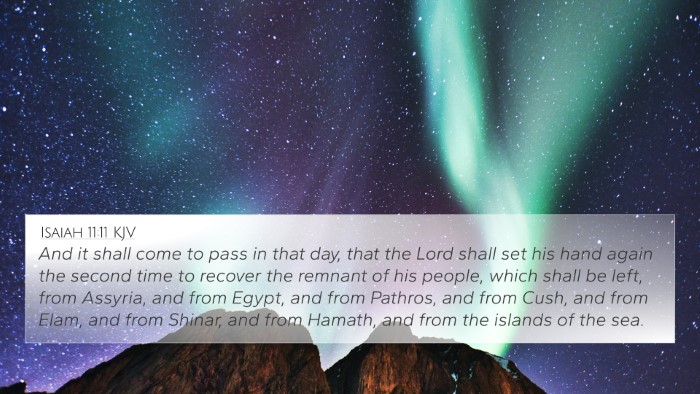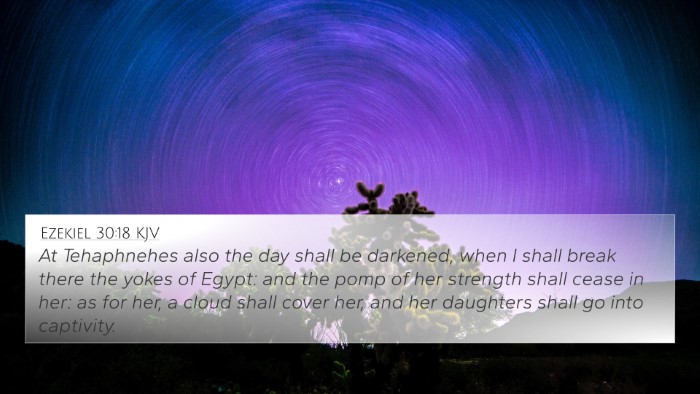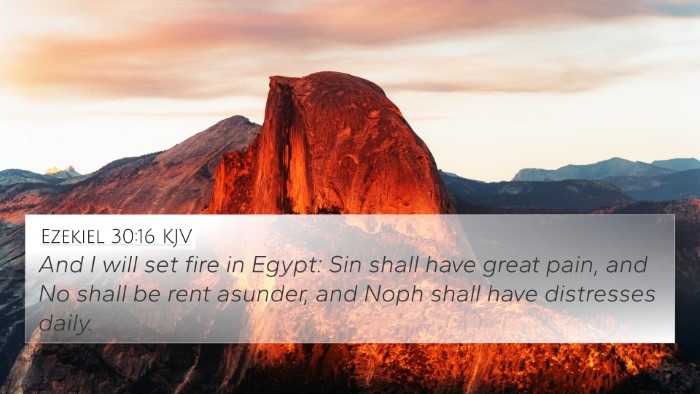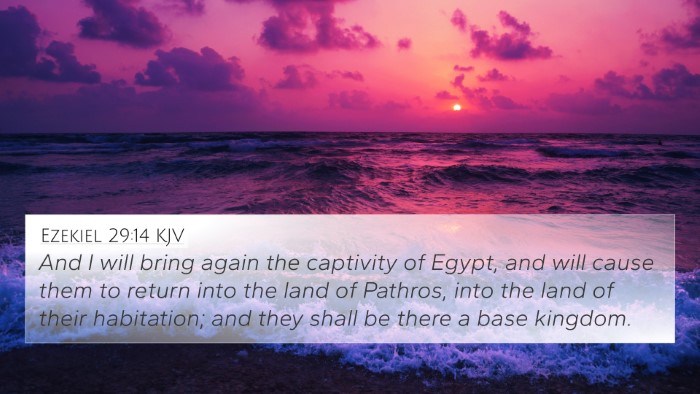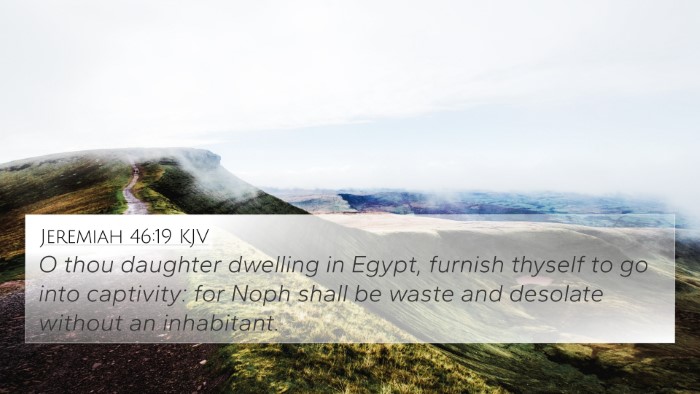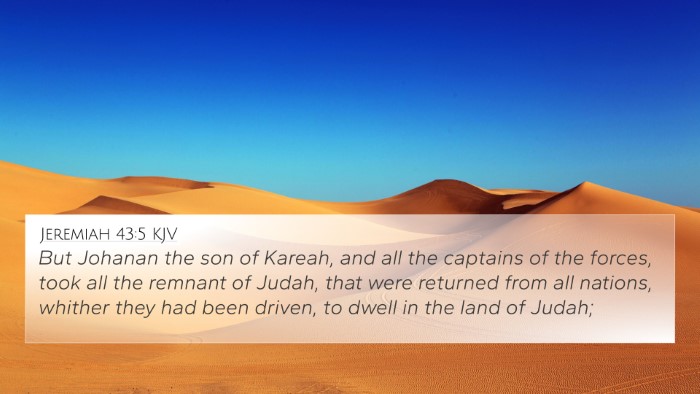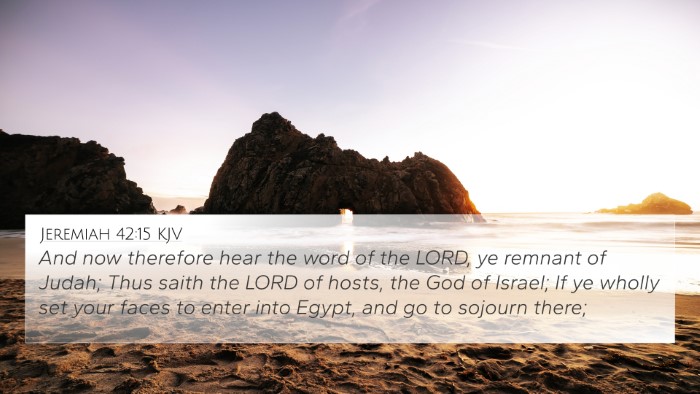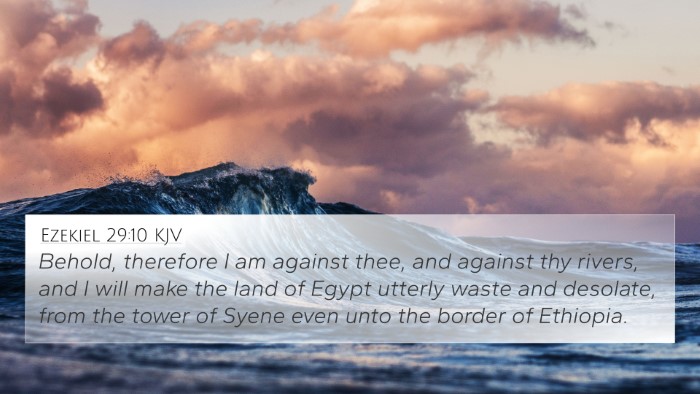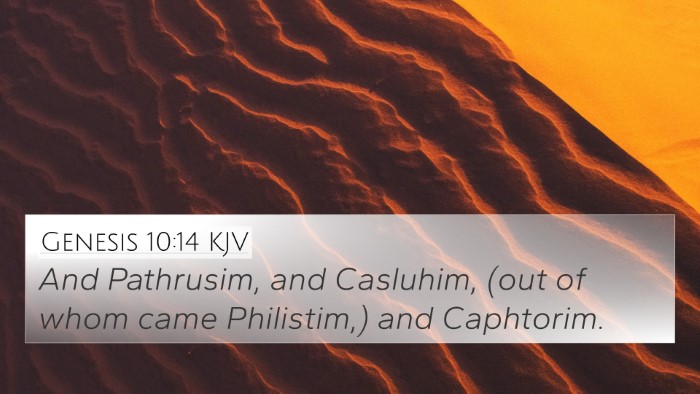Understanding Jeremiah 44:1
Jeremiah 44:1 states:
"The word that came to Jeremiah concerning all the Jews which dwell in the land of Egypt, which dwell at Migdol, and at Tahpanhes, and at Noph, and in the country of Pathros, saying,"
Contextual Background
In this verse, we find Jeremiah delivering a message from God to the Jewish exiles living in Egypt. This group had fled from Babylonian conquest and was settling in various cities of Egypt.
Verse Meaning and Interpretation
Below, we provide a comprehensive interpretation of Jeremiah 44:1, utilizing insights from respected public domain commentaries.
Matthew Henry's Commentary
Henry emphasizes the significance of the location of the message. He notes that the detailed enumeration of cities indicates the widespread nature of Jewish settlement in Egypt. The verse serves as an introduction to God’s indictment of their actions. Henry explains that this message reveals Jeremiah's role as a prophet even amidst exile, demonstrating God’s continued concern for His people.
Albert Barnes' Notes
Barnes discusses the historical context in which the Jews had fled to Egypt, pointing out their disobedience to God's command to remain in the land of Judah. He indicates that this verse sets the stage for the consequences of their idolatry and refusal to heed God’s warnings. Barnes provides insight into the importance of the place names mentioned, linking them to the lives of the exiled Jews and their defiance against divine counsel.
Adam Clarke's Commentary
Clarke adds an interpretation of the spiritual implications of the Jews’ actions in Egypt. He points out their inclination toward idolatry and the implications of their desire for security and prosperity outside God's covenant land. Clarke emphasizes that this verse signifies a pivotal moment where God calls them to accountability for their behavior, marking the beginning of a serious discourse about worship practices.
Cross-Referencing Biblical Texts
This verse connects thematically with several other scripture passages. Here are 10 notable cross-references to deepen understanding:
- Jeremiah 42:1-22 - A call to trust in the Lord rather than fleeing to Egypt.
- Jeremiah 43:1-7 - Jeremiah's prophecies regarding the fate of those who went to Egypt.
- Isaiah 30:1-3 - A warning against seeking help from Egypt instead of relying on God.
- Exodus 20:3-5 - The commandments warning against idolatry.
- Jeremiah 2:36 - Commenting on Israel's tendency to seek alliances with nations instead of adhering to God.
- Matthew 2:13-15 - Joseph fleeing to Egypt for the safety of Jesus, depicting Egypt as a place of refuge.
- Deuteronomy 28:68 - Prophetic warning about returning to Egypt as a form of punishment.
- Acts 7:43 - Reference to the worship of false gods in the wilderness which reflects continuous disobedience.
- Romans 1:18-25 - Explores the theme of idolatry and God’s wrath against such disobedience.
- Revelation 11:8 - Symbolic reference to spiritual Egypt, indicating a place of sin and rebellion against God.
Thematic Biblical Verse Connections
The themes in Jeremiah 44:1 resonate throughout the scriptures, highlighting:
- The consequences of disobedience - explored in Deuteronomy and Romans.
- Idolatry and false worship - as demonstrated in Exodus and Acts.
- God's guidance vs. human folly - seen in Isaiah and Matthew.
- The role of the prophet - Jeremiah as a voice for God amidst exile.
- Hope and judgment - God’s dual nature as being both merciful and just.
Reflections for Study
This verse serves as a vital reminder of the need for faithfulness to God’s commands and the dangers of relying on worldly solutions. Understanding the consequences faced by the exiled Jews in Egypt can inform our current practices and belief systems.
For those studying the Bible, utilizing tools for Bible cross-referencing can significantly enhance comprehension. The Bible concordance and Bible cross-reference guide allow readers to explore comparative Bible verse analysis, uncovering connections and themes efficiently.
As you delve deeper into scriptural studies:
- Explore how to use Bible cross-references effectively.
- Utilize comprehensive Bible reference resources to trace themes.
- Investigate links between the Old and New Testament, especially in prophetic and epistolary texts.
